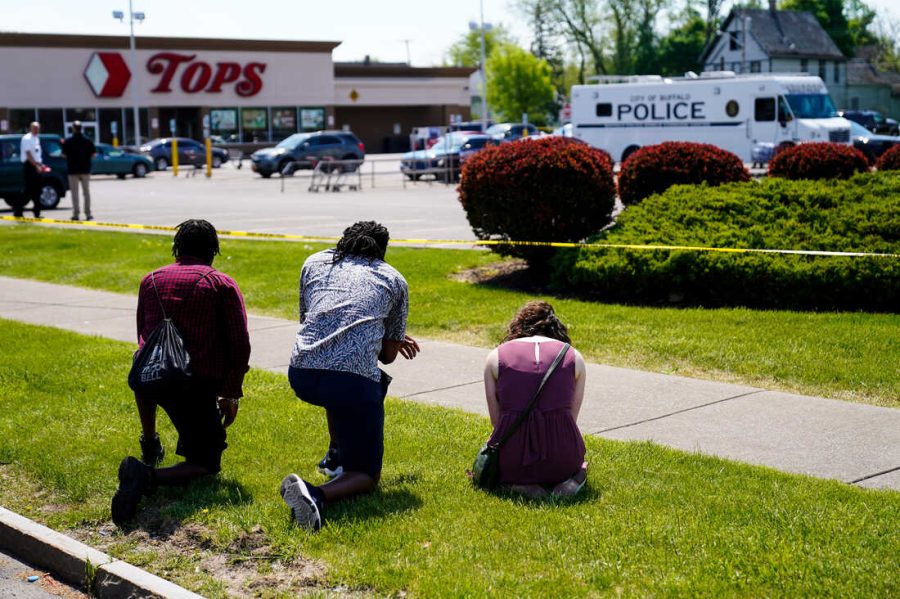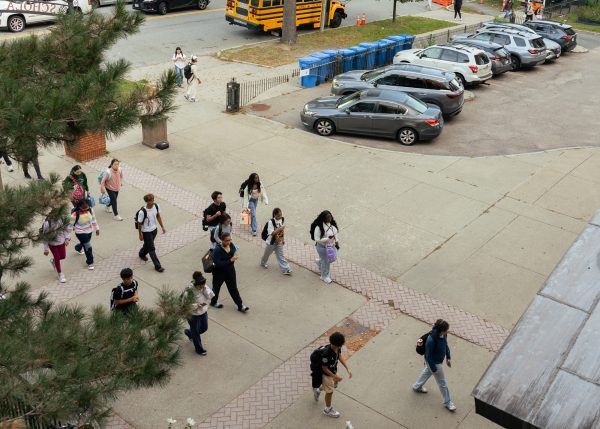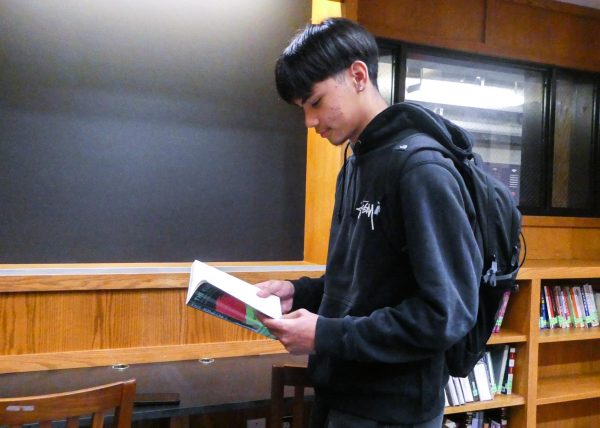Reflecting on the Buffalo Massacre
The streets around Tops Friendly Markets are packed, as the Buffalo community comes together to aid families suffering from the armed hate crime and massacre that took ten lives on May 14.
Tops Markets was not only Buffalo’s single stop for fresh produce, but also a center for the community that fought for an accessible grocery store for years. As national news coverage and public attention shift away from this racial attack, the community wonders what will happen after the public’s “thoughts and prayers” die down.
Americans are growing numb to mass shootings, with the Buffalo massacre being one of many tragic instances where, yet again, lack of congressional action and gun control has cost lives. The United States must acknowledge and treat gun violence as a public health crisis, which demands gun control laws and background checks with fewer loopholes, so history doesn’t repeat itself.
Payton Gendron, who drove hours to attack a predominantly Black neighborhood, has been charged with ten counts of first-degree murder, ten counts of second-degree murder charges as hate crimes and one count of criminal possession of a weapon, in addition to three counts of attempted murder as a hate crime. This is absolutely incomparable, however, to the sentences afflicted against people of color, who are convicted of crimes they did not commit or given unfair sentences due to biases surrounding skin color and ethnicity.
Gendron’s actions have been attributed to poor mental health and the effects of the pandemic, but these excuses only ignore the root of our nation’s problems: gun legislation and white supremacy.
Ms. Cheralyn Pinchem, Boston Latin School History teacher and faculty advisor of BLS Black Leaders Aspiring for Change and Knowledge, says, “As a culture, we tend to lean into the violence, thinking it’s easier.” With the recent Uvalde Elementary School shooting, the Atlanta Asian hate crimes and the Laguna Woods shooting, citizens wonder how much violence is necessary until policy is enacted.
Oriana Dunker (IV) voices her frustration, saying, “[For example], if you know so many car accidents are happening, you make a law for seatbelts, right? […] All these mass shootings [are] happening, but nothing, nothing happens.”
Gendron purchased an AR-15 despite New York’s Extreme Risk Protective Order, which prohibits people who are danger-prone from purchasing guns. Because of the insufficient enforcement of this law, Gendron was able to purchase the rifle despite being committed to the psychiatric ward a year prior for claiming he was going to perform a murder or suicide.
“What on earth could anyone possibly need an assault rifle for?” questions BLS Civics teacher Ms. Cate Arnold. “[One should not have] an assault rifle […] that fires multiple […] bullets in seconds.” After one mass shooting in Christchurch in 2019, New Zealand banned all semi-automatic weapons. In New Zealand, guns were mostly used as hunting tools, but after recognizing the potential harm they could inflict, authorities did not hesitate to outlaw firearms.
All around the world, governments have responded similarly. Stricter gun legislation, stronger background checks and the outlawing of assault weapons have preceded the decrease in gun-related deaths. If other countries can respond appropriately, so should America. Ms. Pinchem adds, “[If our politicians’] first go-to is [to] ‘let’s show them who we are’ […] the rest of the country is going to kind of fall in line.”
Due to America’s rigid and polarized partisan parties, it is especially hard for the government to come to an agreement over controversial topics such as gun legislation, let alone begin conversations about white supremacy and racism.
The Buffalo shooting represents much more than the issue of gun control. Gendron’s actions are a direct result of white supremacy, and “the fundamental anti-blackness this country was founded upon,” reminds Ms. Arnold. Treating the incident as an issue pertaining solely to gun politics overlooks the lives that were taken.
Along with understanding why shootings happen, it is important to honor the people whose lives were taken and amplify their stories above the shooter’s. The ten victims from Buffalo should be remembered for the lives they led and not as mere numbers.
Gendron, along with the shooters from Christchurch and El Paso, all claimed to be motivated by white supremacist ideology — specifically, the great replacement theory. The great replacement theory is a conspiracy spread by white supremacists that states non-whites, immigrants and minorities are scheming to drive the white race into extinction. This rhetoric has been constantly supported and preached by Tucker Carlson, Fox News’s most watched television host. Payton Gendron’s violence is testament to the impact of racist rhetoric that brews on the internet.
As the BLS community continues to process the recent tragedies in Uvalde, Buffalo and all across the country, Ms. Pinchem reminds us that we can always be supporters in our own community, saying, “I think that’s where we could […] learn and heal and grow from tragedy.”







